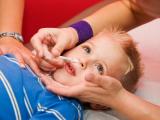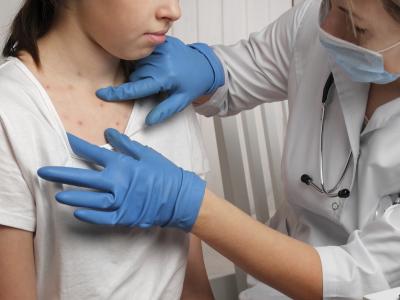Sep 24, 2009
Forecast for early-October vaccine deliveries doubles
Between 6 million and 7 million doses of H1N1 flu vaccine will arrive the first week of October, about double the previous estimate of 3.4 million doses, according to an Associated Press (AP) report today quoting Health and Human Services (HHS) Secretary Kathleen Sebelius. Most of the doses will be the nasal-spray vaccine, Sebelius said. Previous reports said the initial 3.4 million doses would all be the nasal-spray vaccine, which is approved only for healthy people aged 2 to 49 years.
http://enews.earthlink.net/article/top?guid=20090924/4abafcd0_3421_1334520090924-794399662
Sep 24 AP story
Toronto group pens pandemic-ethics reports
The University of Toronto Centre for Bioethics has nine articles covering ethical issues likely to arise in the second wave of the H1N1 flu pandemic. Topics include the duty of healthcare workers to work during a pandemic, limits on individual freedom, government responsibilities in vaccination programs, allocation of limited medical resources; and rich countries' obligation to share resources with poor countries. The authors drew on academic and public opinion research.
http://www.eurekalert.org/pub_releases/2009-09/uotj-mee092209.php
Sep 23 EurekAlert press release
HHS offers pandemic guidance for community, faith groups
HHS today released "H1N1 Flu: A Guide for Community and Faith-Based Organizations." The guide describes how the leaders of organizations can help fight the pandemic by communicating health information effectively, supporting vaccination efforts, linking vulnerable and hard-to-reach populations to information and resources, and adjusting organizational activities to help people stay healthy.
http://www.pandemicflu.gov/professional/community/cfboguidance.html
HHS guide for community and faith-based organizations
AHRQ offers guide to mass medical care
The HHS Agency for Healthcare Research and Quality (AHRQ) today released a guide titled "Mass Medical Care with Scarce Resources: The Essentials," which is an abbreviated version of a 2007 AHRQ publication. Topics covered are community-wide planning, ethical and legal considerations, prehospital, acute, and palliative care, and alternative care sites during public health emergencies. A special section on influenza pandemic preparedness is included.
http://www.ahrq.gov/prep/mmcessentials/
Hyperlinked table of contents and pdf document
CDC launches mobile texting tool
A 3-month pilot text-messaging service has been launched by the Centers for Disease Control and Prevention (CDC) to deliver important CDC information on H1N1 flu and other topics directly to users' mobile phones. A subscription is required, but there is no cost. The CDC anticipates delivery of about three messages a week, and it is possible to opt out at any time. Feedback is sought during the pilot period.
http://www.cdc.gov/mobile/
CDC Web page with instructions
US campus flu cases rise 15%
Flu-like illnesses at the nation's colleges rose by 15% from the previous week, according to a surveillance report for the week ending Sep 18 from the American College Health Association (ACHA). The report was based on 7,696 cases at 243 schools. It doesn't specify flu subtype, but federal officials have said 98% of all circulating strains are pandemic H1N1. The number of new infections was highest in New England and some western states, and the pace seemed to slow in some southern states.
http://www.acha.org/ILI_LatestWeek.cfm/?date=092409
Sep 24 ACHA surveillance report
Trial confirms CDC wariness about rapid flu tests
A field trial at two schools at the start of the novel H1N1 outbreak showed that the rapid influenza A and B test worked well for confirming the new virus, but not for ruling it out, according to the latest issue of Morbidity and Mortality Weekly Report. The researchers compared the rapid test with real-time reverse transcription-polymerase chain reaction assay. The findings confirm recent CDC advice to be cautious about using negative rapid test results to guide treatment.
http://www.cdc.gov/mmwr/preview/mmwrhtml/mm5837a1.htm
Sep 25 MMWR report


















